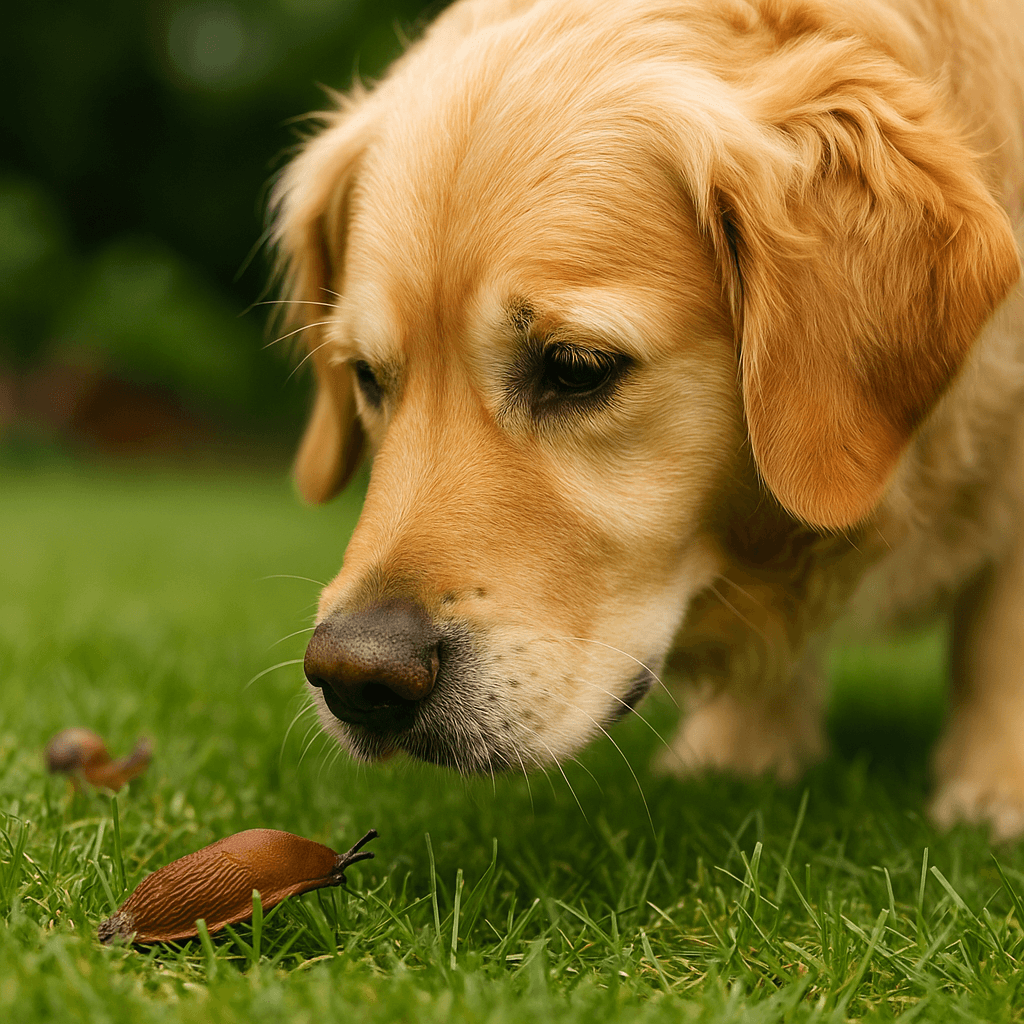Walk into a UK farm shop today and you will see cartons of goat’s milk sitting right next to cow’s milk. Social media claims it is a “super drink” that helps promote healthy skin, strengthens the immune system, and is easier to digest than other dairy products. But can goat’s milk help your dog, or is it just hype? This guide breaks down the real health benefits, the risks, and exactly how much goat’s milk a dog can have. We will compare it to cow’s milk, cover food allergies and lactose intolerance, and show you how to consume goat’s milk safely—so your pet stays properly hydrated, happy, and healthy.
What Is Goat Milk?
Goat milk is the fluid secreted by goats (obvious, but worth stating) and, like cow’s milk, it contains water, protein, lactose, fat and minerals. Where it differs is in the size and shape of fat molecules: smaller fat globules and a looser curd make it more easily digested in a dog’s digestive tract. Goat milk also has slightly less lactose—about 4.1 g per 100 ml compared with 4.7 g in cow’s milk—so many dogs with mild lactose intolerance cope better. But “less” is not “none”; dogs that lack the lactase enzyme will still struggle to break down milk sugars, leading to digestive issues.
From a nutritional angle, goat’s milk supplies calcium for bone health, medium‑chain fatty acids that provide quick energy and potential anti‑inflammatory properties, plus B‑vitamins for muscle development. Yet experts at the Royal Veterinary College remind us that milk—any milk—is supplemental, not a complete food, and should never replace balanced dog’s food formulated to FEDIAF standards.
Why UK Pet Parents Are Trying It
British dog lovers are embracing goat milk for several reasons. First, the “raw feeding” wave has hit our high streets: 94 % of UK vets say they have clients feeding non‑traditional diets, including raw goat milk and raw fermented milk products. Second, Instagram is full of claims that goat’s milk can boost a dog’s immune system, improve nutrient absorption and calm inflammatory responses—especially in senior dogs or pets recovering from illness. Third, more local dairies now bottle pasteurised goat’s milk for humans, putting it within easy reach of many dogs’ bowls.
Cost also matters. Goat’s milk powder marketed for pets can run £12‑£15 per 400 g tin. By contrast, a litre of pasteurised human‑grade goat milk costs around £2.20 in UK supermarkets. That price difference tempts many pet owners to pour the supermarket version over kibble, add it to lick‑mats, or freeze it into icy bites. Yet the FSA reminds us that raw milk still poses a higher risk of harmful bacteria, so any budget-friendly choice must also be pasteurised.
Possible Benefits for Some Dogs
1. Gentler Digestion
Smaller fat molecules and A2 beta‑casein form looser curds, meaning goat’s milk leaves the dog’s stomach faster than cow’s milk, reducing the chance of bloating in dogs that are lactose intolerant but not fully lactose‑restricted. Good bacteria produced in fermented goat’s milk or kefir can further aid digestive enzyme activity and help repopulate the gut after antibiotics.
2. Improved Nutrient Absorption
Medium‑chain triglycerides and essential fatty acids in goat milk are quickly burned for energy, supporting healthy skin, coat and, in senior dogs, cognitive function. A 2024 RVC case series showed dogs on goat‑milk‑enhanced recovery diets regained weight 15 % faster than dogs on cow‑milk‑based formulas, likely due to better nutrient absorption.
3. Lower Lactose Load
Because goat milk contains fewer milk sugars, many dogs—especially adult dogs with only mild difficulty digesting milk—avoid the explosive diarrhoea that cow’s milk can trigger. However, that same NHS resource on lactose intolerance reminds us that not all dogs are safe; truly lactose‑intolerant dogs should still avoid all dairy products.
4. Potential Anti‑inflammatory Properties
Goat’s milk supplies conjugated linoleic acid (CLA) and selenium, nutrients linked to moderating immune response. Though large‑scale canine trials are lacking, small vet‑run pilot studies note reduced inflammatory markers in arthritic dogs that replaced part of their daily treats with fermented goat’s milk good for dogs’ joints.
5. Palatability for Fussy Eaters
Many dogs refuse dog’s food when stressed or ill. A drizzle of goat milk good for enhancing aroma can coax them to eat, ensuring vital calories and medication go down smoothly without resorting to high‑salt human food.

Digestive Health and Nutrient Absorption
Because goat’s milk has smaller fat globules and less lactose, many dogs—especially older dogs—experience improved digestive health when offered a splash over regular meals. Good bacteria in fermented goat’s milk release digestive enzymes that break food particles into smaller pieces, improving nutrient absorption and reducing the risk of diarrhoea. Unlike cow’s milk, which often leads to gas or bloating, goat milk good for dogs tends to pass through the digestive tract quickly, minimising stomach upset.
Risks & Vet Warnings
Pasteurised goat’s milk is safe for most dogs, but raw goat milk can carry harmful bacteria such as Salmonella and E. coli. The Food Standards Agency warns that raw drinking milk from goats, cows or sheep has been linked to food‑poisoning outbreaks in the UK, with children and pets at higher risk. Dogs with weak immune systems, senior dogs, or those recovering from illness should stick to heat‑treated milk for dogs.
Lactose intolerance is another red flag. The NHS notes that tummy pain, gas and diarrhoea can start minutes after lactose enters the dog’s digestive tract. Because goat’s milk still contains milk sugars, lactose‑intolerant dogs may suffer digestive upset. High fat content is a third concern: saturated fats can trigger pancreatitis in breeds such as Miniature Schnauzers. Most vets at the Royal Veterinary College advise limiting fatty dairy products in any dog’s diet and choosing balanced, complete dog’s food for everyday nutrition
Goat vs Cow Milk—Key Differences
Is goat’s milk good for dogs compared with cow’s milk? Yes, in several ways:
| Factor | Goat’s milk | Cow’s milk | Why it matters |
| Fat globule size | Smaller (≈1 µm) | Larger (≈1.8 µm) | Smaller fat molecules are more easily digested and can improve nutrient absorption in many dogs |
| Casein type | Mostly A2 beta-casein | Mix of A1/A2 | A2 is linked to fewer inflammatory responses in sensitive pets |
| Lactose level | ~4.1 g/100 ml | ~4.7 g/100 ml | Slightly lower milk sugars reduce digestive issues for dogs that have difficulty digesting milk |
| Essential fatty acids | Higher short‑ & medium‑chain content | Lower | Supports skin, coat and the immune system |
Because of those smaller fat globules and the unique protein structure, goat milk good for adult dogs may lead to fewer adverse reactions, while cow’s milk often causes digestive issues in lactose intolerant dogs.
How Much & How Often?
A safe guide is 1 tablespoon of goat milk for dogs per 5 kg body weight, up to three times a week. That works out to 2 oz (≈60 ml) for a 20 kg collie—well below one cup. Serving more raises fat content and calories, which can unbalance a dog’s diet. Several canine‑nutrition sites echo this limit, advising owners to start small and watch for digestive upset .
If you prefer numbers, the Bones & Co. feeding chart suggests pets under 9 kg stay below 60 ml a day; dogs over 36 kg can have 280 ml . Always deduct those calories from the dog’s food allowance and consult your vet before adding raw fermented milk or any dairy products to a weight‑loss plan.
Which Dogs Should Skip Goat Milk
Goat’s milk safe for most dogs is not safe for every dog. Keep it off the menu if your pet:
-
Has confirmed lactose intolerance or milk allergy—symptoms noted by the NHS include bloating, wind and vomiting.
-
Suffers from pancreatitis or high‑fat sensitivity—extra saturated fats can spark painful flare‑ups.
-
Is obese or on a low‑fat prescription dog’s diet.
-
Is a puppy under 12 weeks; young pups need specially balanced milk replacers, not raw milk.
-
Takes part in an elimination diet to pin down allergic reaction triggers.
Remember, not all dogs process dairy in the same way; many dogs tolerate tiny tastes, while others react to even a teaspoon.
Buying & Serving Ideas
-
Choose pasteurised or gently pasteurised milk in sealed cartons from UK supermarkets or pet shops.
-
Verify pet-label products follow FEDIAF guidelines.
-
Keep goat’s milk refrigerated at 4 °C and discard after five days once opened.
-
Easy serving ideas:
-
Pour 1–2 tbsp over kibble as a food topper.
-
Freeze goat’s milk into cubes for hot-weather “pupsicles,” a fantastic way to hydrate dogs that refuse plain water.
-
Blend with pureed fruit or bone broth for extra electrolytes and taste.
-
Add to homemade treats—just adjust other liquids to keep recipes balanced.
-
FAQs
Can I give my dog goat's milk every day?
Daily servings push fat content up and may cause weight gain. Stick to two or three days a week.
What are the side effects of goat milk for dogs?
Gas, loose stools or an allergic skin flare can appear in lactose intolerant dogs within hours of drinking.
Does goat's milk settle a dog's stomach?
Fermented goat's milk with good bacteria may soothe mild upsets, but persistent digestive issues need vet care.
What type of milk is best for dogs?
Fresh water first, then pasteurised goat’s milk in moderation. Lactose‑free or hydrolysed dairy products are safer for truly lactose‑intolerant pets; cow’s milk causes more adverse reactions for most dogs.
Conclusion
For many canine companions, goat’s milk is an excellent source of hydration and essential nutrients when used in moderation. It provides fatty acids that help keep skin healthy, aids nutrient absorption, and offers anti-inflammatory properties that can ease joint issues. Still, not all dogs can handle dairy, so watch for signs of lactose intolerance or allergic reaction. Choose pasteurised milk, introduce it slowly, and adjust the serving size to match your dog’s body weight and activity level. Follow these guidelines and goat’s milk can be a safe, nutrient-dense food topper that supports coat health, digestive health, and overall wellbeing—helping your pup stay healthy, hydrated, and happy all year round.




